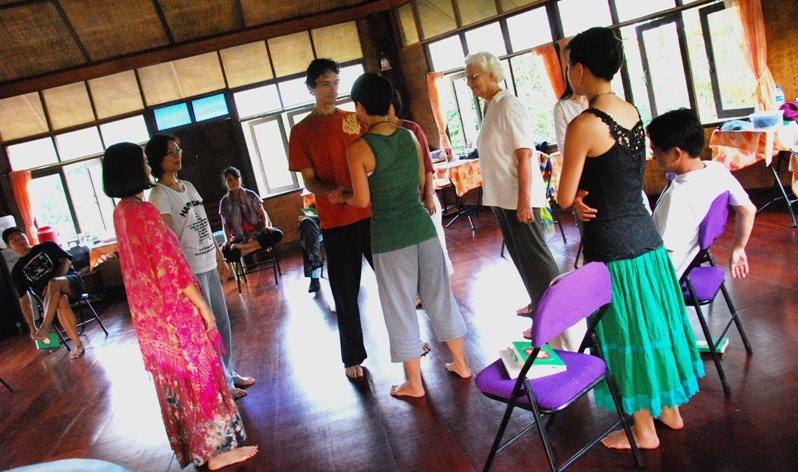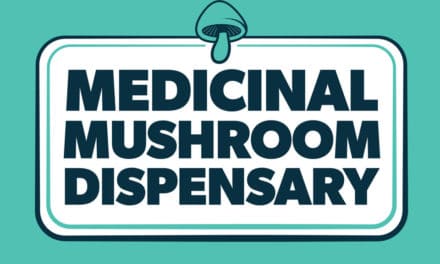People who choose to use psychedelics do so for their own individual reasons. Some people use psychedelics acutely to address issues like depression, addiction, or PTSD. For others, occasional psychedelic use could be an enriching part of a healthy and fulfilling lifestyle. But for some, it can be a counterproductive habit borne from social pressures, the need to escape, or as a way to repress (or unintentionally create) trauma.
And yet, no matter where one stands on this spectrum of positive to harmful psychedelic use, one thing is unfortunately very much the same across the board — there are very few resources available for people who want professional support to work through either the good or bad of their psychedelic journey. But that may all be changing, thanks to the onslaught of psychedelic research we’ve seen in the last few decades that support the use of psychedelics for certain mental, physical, and emotional ailments. As the “Just Say No” message of old gets outdated, we need to provide a greater spectrum of resources to people who choose to use psychedelics. Harm reduction psychotherapy, which offers support to both people who choose abstinence and those who continue to use substances, is one of those resources.
First, Do No Harm
Harm reduction psychotherapy is a new model of psychotherapy — often with a focus on substance use and abuse — that defies most everything we know about traditional rehab or addiction recovery. Whereas conventional models such as Alcoholics Anonymous emphasize complete abstinence from a substance as the primary measure of success, harm reduction psychotherapy makes room for infinite nuance. The goals and forms of someone’s treatment plan is tailored to their desired relationship to a substance. This means that people who want to continue to use recreational substances but in a safer manner—or people that simply want to moderate their usage to a more reasonable level—are just as welcome as someone looking to abstain from substances entirely.
In essence, the purpose of a harm reduction approach is to reduce harm and raise awareness, not to demonize or assume that reasonable substance use (which accounts for the vast majority of all substance use) is impossible. Each person’s relationship with any substance is unique and waiting until someone is desperately in need to offer help is not an optimal system to have.
Psychedelic Support
While harm reduction psychotherapy can be applied to any kind of substance use or misuse, there are many things it offers specifically to psychedelics users that sets it apart from other types of therapy or recovery. For starters, harm reduction psychotherapy does not discount either the benefits or the dangers of psychedelic use but instead offers education and even specially-tailored treatment with specialists in managing the effects of both positive and traumatic psychedelic journeys.
Harm reduction psychotherapy could offer someone fresh from an incredible ayahuasca experience the tools and support they need to integrate their journey and apply the lessons they have learned with lasting effect. Or, harm reduction psychotherapy could help someone who underwent a traumatic “bad trip” to reconcile their fears and deal with the soul-rattling aftermath of such a harrowing journey. Further still, harm reduction psychotherapy could serve someone who is interested in experimenting with psychedelics but unsure about the dangers and best practices involved. As long as potential harm is being reduced, then good is being done.
Harm Reduction in Action
Many incredible organizations are already leading the way in sharing the harm reduction model with the world. The Zendo Project, a group affiliated with the Multidisciplinary Association for Psychedelic Studies (MAPS), provides on-site harm reduction education and support for festival-goers at events like Burning Man, Lightning in a Bottle, and Envision. Last year, we featured an article about Psychedelic Times co-founder Joe Mattia’s experience volunteering with Zendo Project at Burning Man.
The nonprofit DanceSafe is another group that’s leading the way on harm reduction practices. DanceSafe has been providing peer-based education and on-site drug testing at music festivals since the 1990s. In a recent interview with Psychedelic Times, DanceSafe founder Emanuel Sferios shared the dangers of the abstinence model and the importance of taking a harm reduction approach instead. The Center for Optimal Living in New York, founded by one of the progenitors of harm reduction psychotherapy, Andrew Tatarsky, offers public outreach programs, including education.
Harm reduction psychotherapy, which may seem radical today, may very well be the next major evolution in substance education and treatment. And it’s a step worth taking. The reality is that people take psychedelics and will continue to take them. Rather than isolate those people and possibly cause more damage, practices like harm reduction psychotherapy could be the key to help us safely integrate the benefits that psychedelics can offer humanity.










